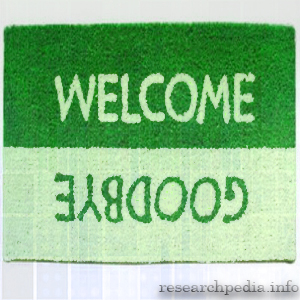Good Bye Impact Factor and Welcome Impact

Impact factor in was initially proposed to help the librarians to subscribe journals in limited budget, as it was impossible for them to buy all journals subscriptions. It was useful to judge the importance of journals and was well accepted by the academic community. Its misuse starts when it was used for the promotions of faculty members, granting research funding and travel grants. As the impact factor is calculated manually and it is defined as mean number of citations to papers published in a journal in preceding two years. The problem is that 80% of the citations are received by only 20% papers, which mean all the papers published in the journal cannot be considered of same quality. Also mean is affected by extreme values so as impact factor. Impact factor only tells us about the quality of journal not about the quality of individual papers or researchers publishing in that journal. There is another problem with the consideration of two years only while calculating impact factor as for different journals and different fields the peak of citations occurs after different number of years so threshold of two is actually a dead plant. Good bye Impact Factor, Please go Impact Factor. If you are still not repeating the previous two sentences with me please carefully check your degrees or think are you really literate or still … [3].
A better way to judge the importance of researchers is H-Index [2]. It considers the papers of a researcher and the citations to those papers. One can see it is a better choice to be used for promotions of researchers, approving research and travel grants. Are you happy now? Yes/No. Yes, But I am still not happy dear as I think we should have moved to H-Index in 2005 and in recent years should have developed the sense that H-Index is also not enough. We need what is Impact “Welcome Impact”. Impact is simply the usefulness of the research work in terms of its ease of commercialization and deliverance to whole community.
Note: Please comment about the usefulness of aforementioned content. We will be considering comments to improve the quality of our post in order to make it more.
[1] Garfield, Eugene. The Thomson Reuters Impact Factor. Thomson Reuters. 1994.
[2]http://arxiv.org/pdf/physics/0508025.pdf
[3] http://occamstypewriter.org/scurry/2012/08/13/sick-of-impact-factors/


Leave a Reply